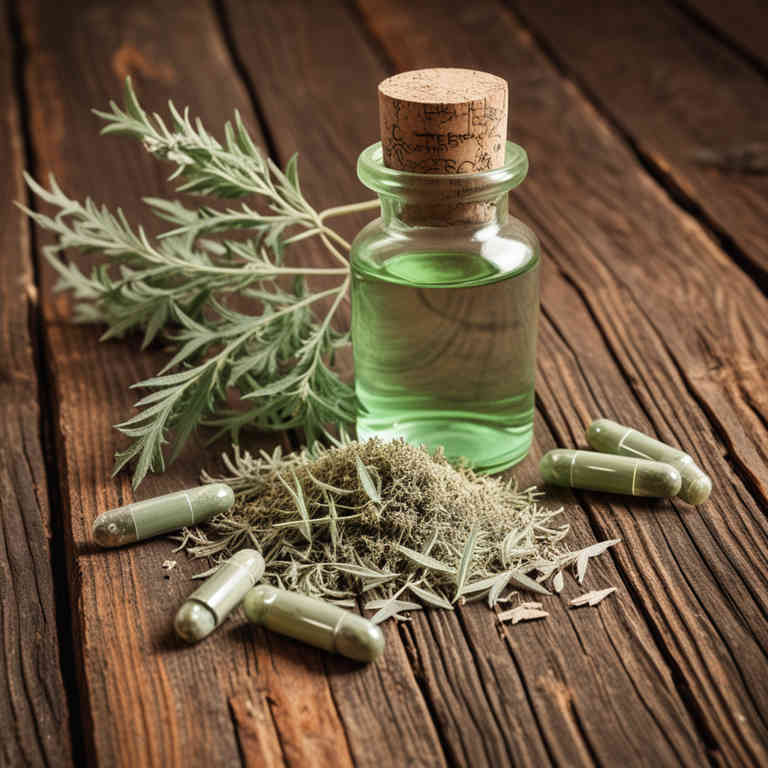Artemisia absinthium capsule for medicinal use

Artemisia absinthium capsule is a herbal supplement derived from the dried leaves and flowers of the wormwood plant.
It is traditionally used in herbalism for its purported digestive and detoxifying properties. The capsules are often taken to support liver function and aid in the treatment of digestive ailments. It is also believed to have antiparasitic and antiseptic qualities.
However, due to its high thujone content, it should be used with caution and under professional guidance.
Uses
Artemisia absinthium capsule has been used to treat various ailments for centuries, with historical roots in ancient Egypt, Greece, and Rome, where it was valued for its purported medicinal properties.
Traditionally, it was used to alleviate digestive issues, fever, and parasitic infections, and it was also believed to have mood-stabilizing effects. In modern times, it is often used as a natural remedy for digestive health, liver support, and as an antiparasitic agent. Some studies suggest it may have anti-inflammatory and antioxidant properties, though more research is needed to confirm its efficacy.
Due to its potential toxicity, it should be used with caution and under professional guidance.
Benefits
Artemisia absinthium capsule has health benefits such as supporting digestive health, enhancing immune function, and potentially aiding in the management of parasitic infections.
It contains compounds like thujone and flavonoids that may have antimicrobial and anti-inflammatory properties. This preparation is also traditionally used to support liver function and detoxification processes in the body. Some studies suggest it may help alleviate symptoms of digestive disorders like irritable bowel syndrome.
However, it should be used with caution and under professional guidance due to its potency and potential side effects.
Constituents
Artemisia absinthium capsule active constituents include compounds such as thujone, artemisinin, and various flavonoids.
These compounds are known for their potential antiparasitic, antifungal, and antiviral properties. Thujone, in particular, is responsible for the distinctive bitter taste and may have stimulant effects. Artemisinin is a well-known compound used in the treatment of malaria.
The combination of these constituents may support immune function and help in the management of certain parasitic infections.
Preparation
To make Artemisia absinthium capsule, first gather dried Artemisia absinthium leaves and flowers.
Next, grind the dried plant material into a fine powder using a mortar and pestle or a spice grinder. Then, measure out the desired amount of powder and fill gelatin or vegetarian capsules according to the recommended dosage. Ensure the capsules are properly sealed to maintain potency and freshness.
Finally, store the capsules in an airtight container away from light and moisture.
Side Effects
Artemisia absinthium capsule may lead to liver damage, especially with prolonged or high-dose use.
This herb contains thujone, a compound that can be toxic to the liver and may cause severe adverse effects. It is also associated with gastrointestinal upset, including nausea, vomiting, and stomach pain. In some cases, it may interact with medications, particularly those affecting the liver or central nervous system.
Due to these risks, it is important to consult a healthcare professional before using this preparation.